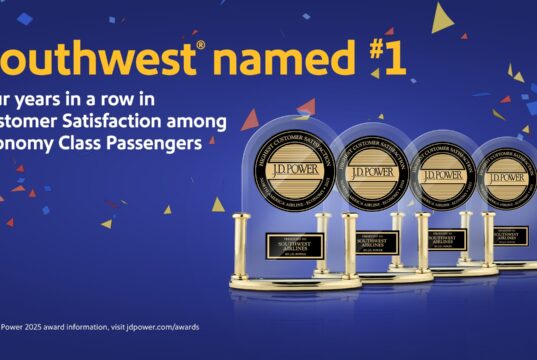
Whether studying for recurrent training, learning a new maneuver, preparing for an interview, or seeking personal development, employing effective learning methods can significantly boost your retention and comprehension. Learning is a dynamic process that can be improved through various techniques and strategies. Here are five research-based tips and tricks to help improve your learning experience.
1. Learning Through Personalization
One of the most effective ways to deeply understand and retain information is to relate it to personal experiences and interests. Research has shown that personally relevant information is better remembered because it is tied to existing neural networks in the brain. When learning something new, try to connect it to things you already know or find ways to apply it in your own life. For example, if you are learning a new language, practice by describing familiar places or situations. Or, when learning new aviation regulations, contextualize them by linking them to past flights or specific operational challenges you have faced. This approach improves comprehension and makes the learning process more engaging and memorable.
2. Undivided Attention: Quality vs. Quantity
Undivided attention is essential for effective learning. In today's digital age, distractions are everywhere, posing a significant challenge to maintaining focus while studying. To maximize productivity, carve out dedicated study periods free from digital distractions such as your phone, social media, or other interruptions. Research highlights that concentrated, uninterrupted study sessions, even if brief, have better results than longer sessions fragmented by multitasking.
In addition to phones and social media, numerous other distractions can hinder effective studying:
- Background noise can significantly disrupt concentration. Whether it's the television, nearby conversations, or street sounds, these noises can distract attention from study materials. Using noise-canceling headphones or relocating to quieter study environments can effectively mitigate these distractions.
- A cluttered study environment is another potential pitfall. Visual distractions from disorganized desks or scattered materials can divert attention. Keeping your study area tidy and organized promotes clarity of thought.
- Notifications from emails, messaging apps, or device software updates can interrupt concentration. Temporarily disabling or silencing these notifications helps maintain an uninterrupted focus on studying.
- Eating and drinking proactively is essential to prevent breaks that can disrupt concentration. Having readily available snacks and water minimizes the need to stop studying.
- Social Interactions, whether from family members, roommates, or friends, can disrupt concentration. Communicating the need for uninterrupted study time can help minimize interruptions during critical study sessions.
3. Use Flashcards!
Flashcards are a powerful tool for active recall–a learning technique that helps with memory retention. Instead of passively reviewing notes, actively engage with the material by quizzing yourself using flashcards. On one side, write questions or prompts; on the other, provide detailed answers or explanations. This approach tests your understanding and reinforces key concepts through repetitive practice. Recalling information from memory strengthens neural pathways associated with that knowledge, making it easier to retrieve in the future.
Implementation Tip: When studying a complex topic, create flashcards with questions on one side and detailed answers or explanations on the other. Quiz yourself regularly to reinforce memory and understanding. Alternatively, organize study groups where you take turns explaining concepts to each other, encouraging discussion and clarification.
Pro Tip: Whether you prefer traditional methods or digital tools, you can create flashcards manually using index cards or utilize free websites that offer customizable templates for creating digital flashcards. This flexibility allows you to tailor your study materials effectively to suit your learning style and preferences.
Digital flashcard apps like Anki or Quizlet offer additional advantages with features such as spaced repetition algorithms. These algorithms optimize learning by presenting flashcards at intervals scientifically designed to maximize retention over time.
4. Location Matters
The environment in which you study can significantly impact your learning outcomes. Create a space that is conducive to learning by minimizing distractions, optimizing lighting and temperature, and organizing study materials efficiently. Understanding your preferences for lighting, noise level, and comfort can help create an optimal study environment. Additionally, studying in different locations for different subjects or tasks can prevent monotony and increase information retention by associating specific environments with specific types of learning.
Implementation Tip: Experiment with different study environments to find what works best for you. Some people prefer quiet libraries or dedicated study rooms, while others may thrive in coffee shops or outdoor settings.
5. Other Effective Techniques
Beyond specific strategies like using flashcards or finding the right study environment, several general techniques can improve your overall learning experience:
- Pomodoro Technique – Use the Pomodoro Technique to structure your study sessions. Work uninterrupted for 25-30 minutes, then take a five- to ten-minute break. After completing four Pomodoro cycles, take a longer break of 15-30 minutes to rest and recharge fully. Adjust the timing based on your concentration levels and study goals.
- Interleaved Practice – Mix up different topics or types of problems within a study session instead of focusing on one subject exclusively. This technique challenges your brain to make connections between related concepts and promotes deeper understanding and retention.
- Active Learning – Engage with the material actively by summarizing, teaching others, or applying concepts to real-world scenarios.
- Review and Reflect – Regularly review what you have learned to reinforce memory retention. Take time to reflect on your progress, identify strengths, and pinpoint areas that need improvement. This reflective practice helps to understand and encourages continuous learning and growth.
- Seek Feedback – Actively seek feedback from instructors, peers, or through self-assessment to gain insights into your understanding of the material. Feedback helps you identify misconceptions, clarify doubts, and prioritize areas needing further attention.
Final thoughts
Studying is a highly personal experience that varies from person to person. What clicks for one person might not work for someone else, so staying patient and trying different approaches is essential. By embracing this process of self-discovery and consistently evaluating what works best for you, you will steadily improve your ability to absorb and retain new knowledge.
Emerald Mental Health offers therapy and coaching sessions designed to enhance your skill set and personal growth, particularly tailored for individuals in the aviation industry. Contact Emerald Mental Health for a free consultation via email at reini@emeraldmentalhealth.com or visit www.emeraldmentalhealth.com to learn more.

















































































































